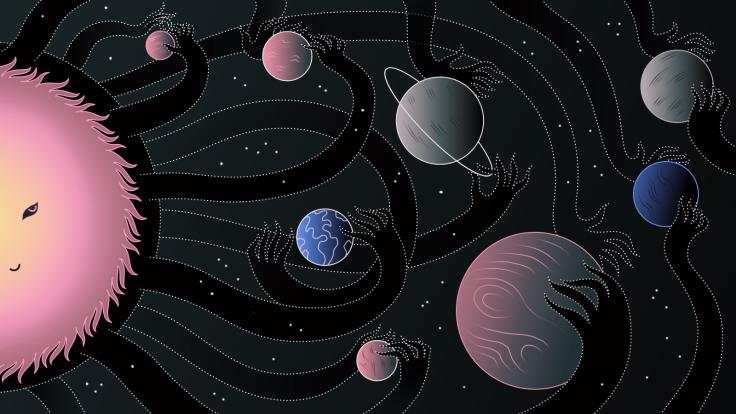Slammed by science
 |
| Andreas Moll explains electricity and magnetic forces. Photo courtesy of Silke Zollinger |
Bathed in orange lighting reminiscent of a beat-generation lounge, 200 people grabbed beers and pretzels and settled in to watch six particle physicists compete for their affection.
In this cross between a lecture hall and a bar at Germany's Max Planck Institute for Physics in Munich, the world's first particle physics slam was unfolding. Scientists from the institute took turns on stage, vying for a trophy that would signify ultimate physics-teaching prowess.
“We fell into a battle where we set up a subtle rivalry,” says physicist Andreas Moll.
Each scientist spent 12 minutes trying to win over the audience with a creative and clear explanation of a particle physics topic such as dark energy or string theory. Moll walked the crowd through the right-hand rule, which tells you the direction in which a magnetic force will push a charged particle. One presenter played music; another showed animations.
The physics slam derives from the Chicago-born tradition of poetry slams, in which poets read their work and judges determine the favorite reading of the night. “It's a scientific talk, but the audience should enjoy it as if they were at the cinema,” says Jan Germer, who talked about supersymmetry.
At the conclusion of each slam, the audience signaled its approval with claps and cheers. The loudest response, as measured by an applause-o-meter, determined the winner.
The most-asked question, says event organizer and MPI public relations officer Silke Zollinger, was “When will the next one be?”
Talk of the event made it all the way to the United States, where the University of Oregon plans to replicate the particle physics slam.
Leah Hesla
Click here to download the pdf version of this article.






